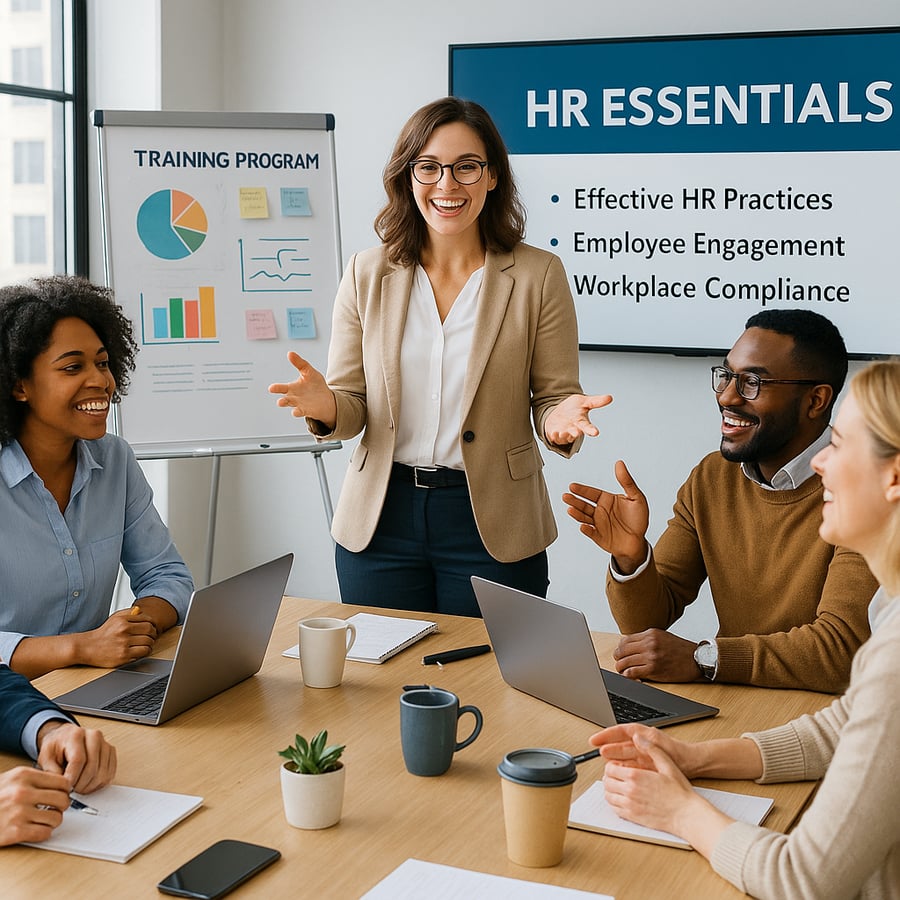Essential HR Skills Every Professional Should Know
In today’s workplace, leadership isn’t just about managing projects—it’s about managing people. Whether you're a new supervisor, a small business owner, or stepping into a people management role for the first time, understanding the essentials of Human Resource Management can be a game-changer. HR is no longer just an administrative function—it’s a strategic driver of organizational success.
Here are the must-have HR skills every professional should know to lead effectively and responsibly:
Strategic HR Thinking
Good people management begins with strategic alignment. Professionals should understand how HR functions support broader business goals—whether that means planning workforce needs, aligning teams with organizational priorities, or driving leadership development. Strategic HR Management ensures you're not just putting out fires but building a proactive, growth-oriented culture.
Effective Talent Acquisition
Recruitment isn’t about just filling open positions—it’s about finding the right people to help your organization thrive. Learning how to write clear job descriptions, conduct effective interviews, and apply thoughtful selection strategies is vital for building a high-performing team from the ground up.
Performance and Talent Development
Hiring great people is just the beginning. Knowing how to manage performance, set expectations, provide feedback, and create a pipeline for growth through succession planning can dramatically improve team outcomes. Talent development is not just an HR function—it’s a leadership responsibility.
Total Rewards and Compensation Insight
Compensation isn't just about salary. It's about understanding the full spectrum of what motivates employees: benefits, incentives, bonuses, and workplace perks. Leaders must also navigate regulations like the Fair Labor Standards Act (FLSA) and manage payroll practices responsibly to avoid compliance issues.
Navigating Employment Law and Employee Relations
Managers are often the first line of defense when it comes to compliance with employment laws. From anti-discrimination policies to understanding employee rights and workplace safety regulations, having a foundational knowledge of HR compliance can protect both the employer and the employee—and promote a fair and inclusive workplace.
Understanding Labor Relations
Even in non-union environments, understanding labor relations helps leaders communicate effectively with employees, build trust, and engage in fair decision-making. For those working in unionized settings, knowledge of collective bargaining agreements, grievance processes, and the role of the National Labor Relations Board (NLRB) is essential.
Why It Matters
Many organizations—especially small and mid-sized businesses—lack dedicated HR departments. In these environments, the responsibility for HR often falls to general managers or team leads who may not have formal training in these areas. The result? Increased risk of compliance issues, poor team dynamics, and costly mistakes.
By developing foundational HR skills, professionals can better support their teams, reduce liability, and contribute to a healthier, more productive workplace culture. HR isn’t a back-office function anymore—it’s central to how organizations attract talent, retain top performers, and grow sustainably.
Whether you’re stepping into a leadership role or simply want to understand the people side of business better, learning the essentials of HR will help you lead with confidence and clarity.
Learn more about the Human Resource Management Essentials for Business Professionals Certificate with Tufts Center for Professional and Workforce Impact.
Discover More

Mastering HR Essentials – Even If “HR” Isn’t in Your Job Title



